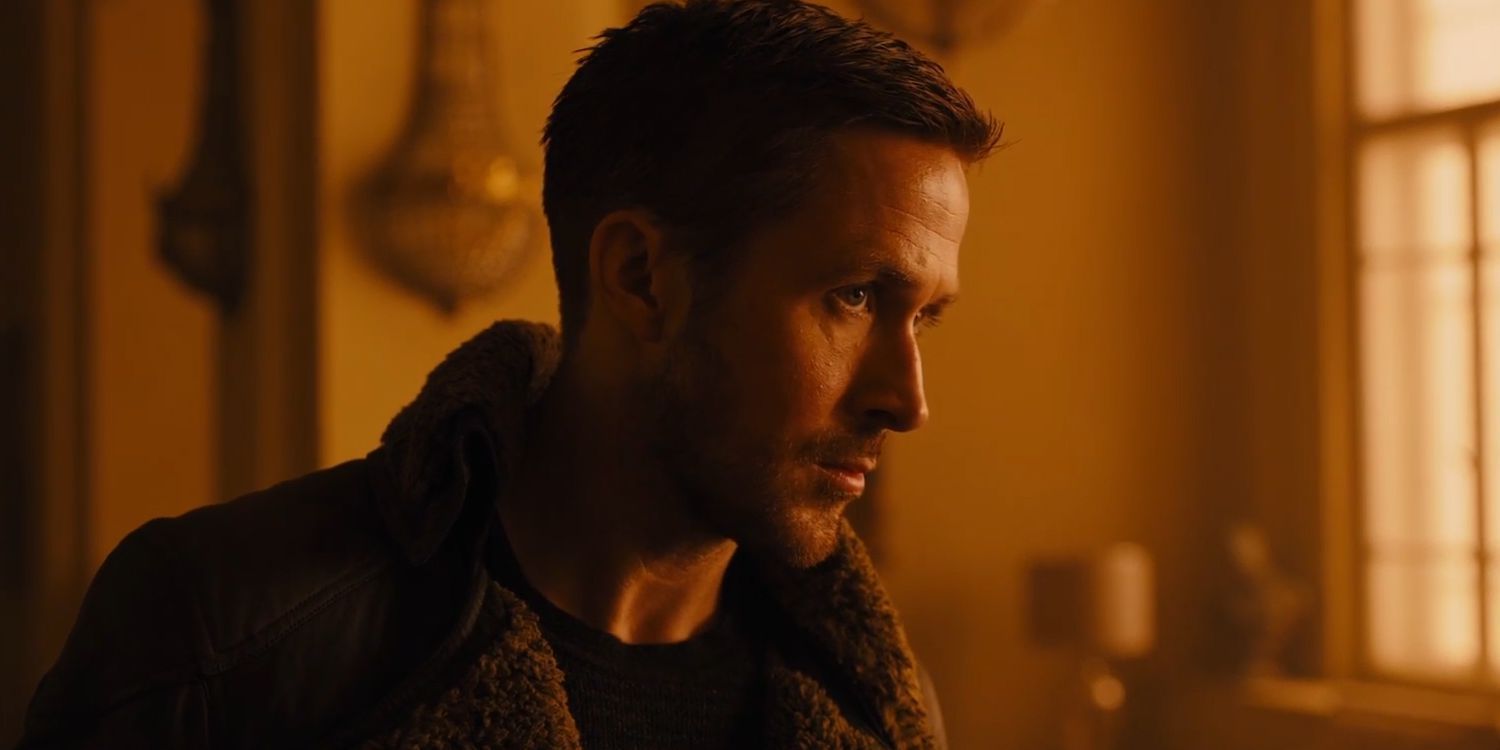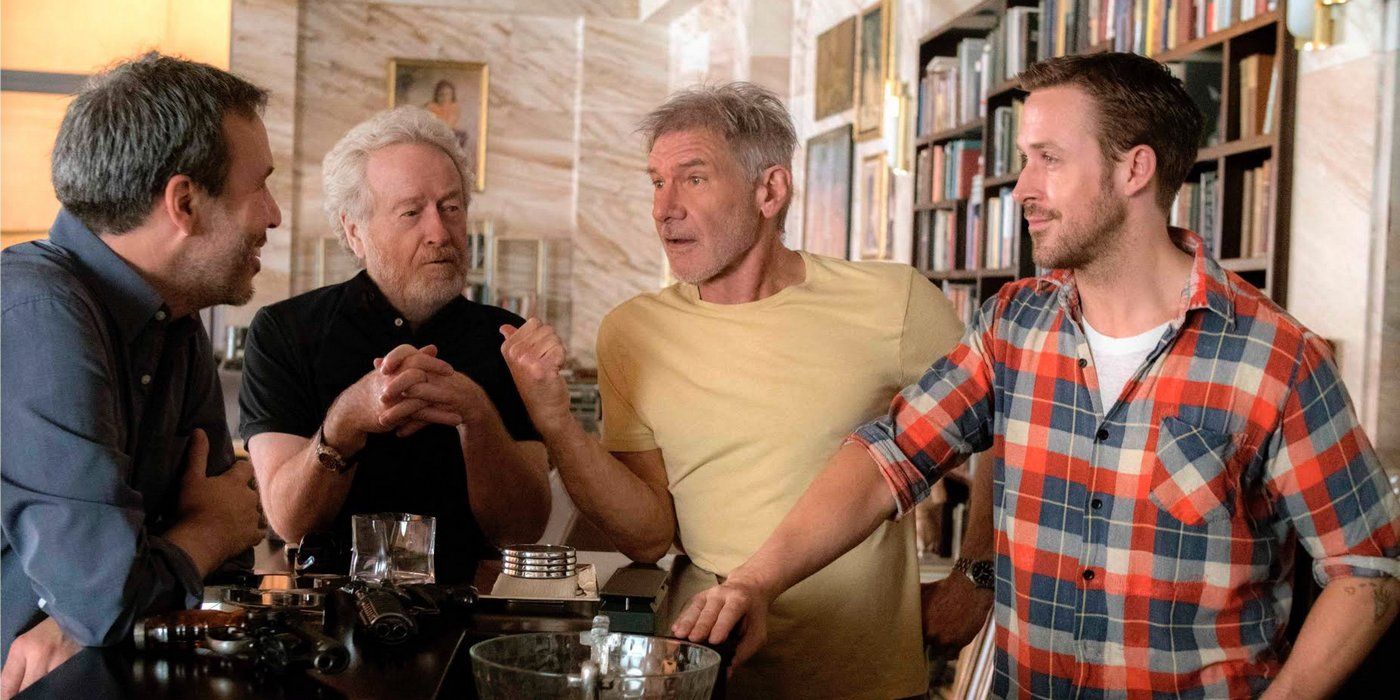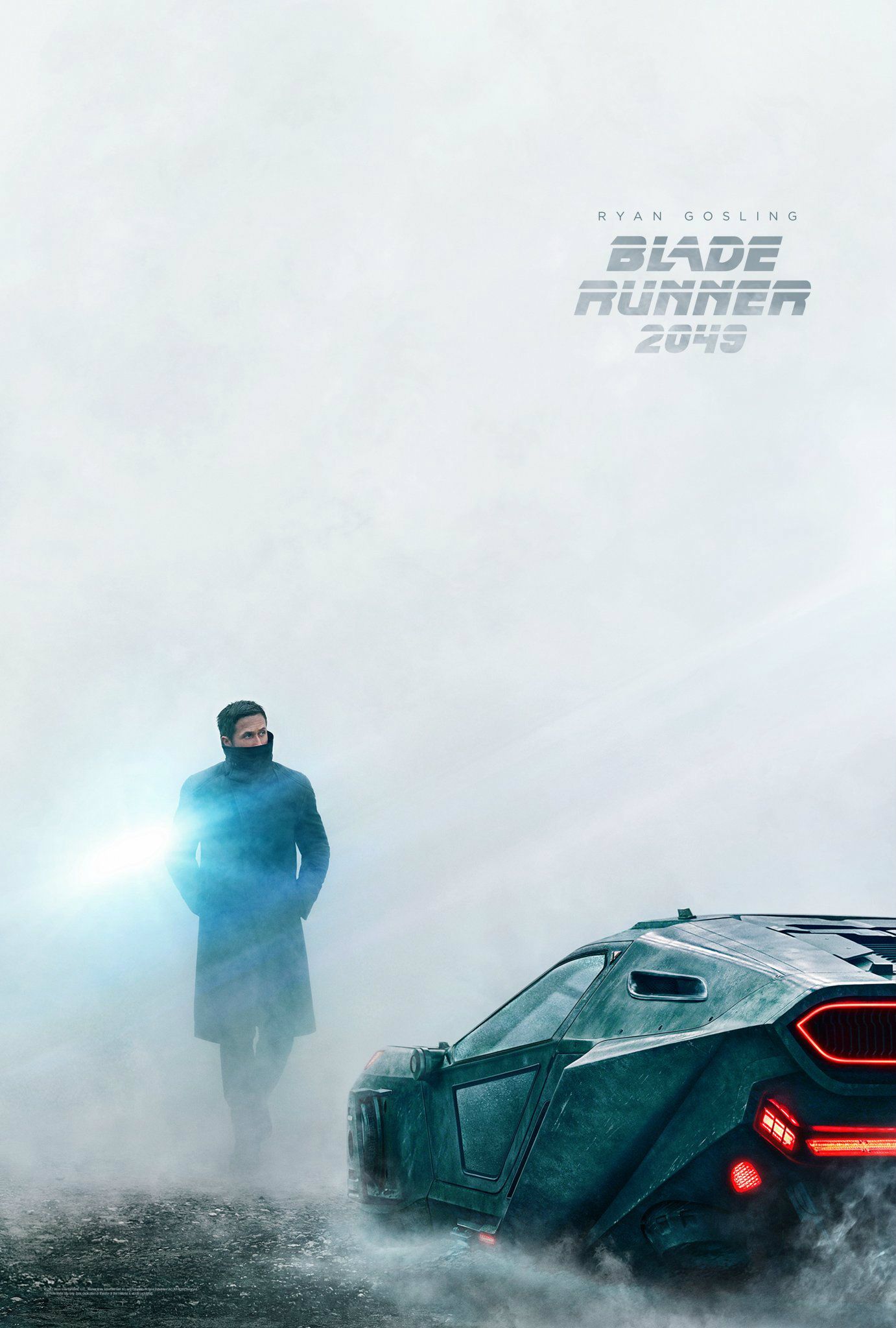Blade Runner 2049 director Denis Villeneuve reveals he instituted some changes to the screenplay so the sci-fi sequel better fit his sensibilities as a filmmaker. At long last, the sequel to Ridley Scott's Blade Runner is upon us, and early word is the movie more than lives up to the hype. Certified Fresh on Rotten Tomatoes, many critics consider Blade Runner 2049 to be one of the best offerings of 2017, praising the jaw-dropping visuals and compelling narrative that adds to the legacy of its predecessor. For Villeneuve, this has to come as a great relief, as he felt the pressure of making a new Blade Runner on a daily basis.
Working on the film was a daunting prospect for all involved, but the script (credited to original Blade Runner writer Hampton Fancher and Michael Green) became a source of comfort for many. Ryan Gosling recently stated all his fears about the project were alleviated when he heard Harrison Ford loved where the story was headed. Villeneuve was also relieved after reading the screenplay, realizing that 2049 would not just be a rehash of its predecessor. But even though the director was impressed by what Fancher and Green had in store, he made some tweaks in development so the movie was more in line with his approach.
In an interview with Cinema Blend, Villeneuve talked about alterations he made to the screenplay so Blade Runner 2049 ultimately felt more like a Denis Villeneuve film than a Ridley Scott (who helmed the first film) one:
"I'd say that the main story stayed the same. The core of the story, I protected it. But there's a lot of it that came... when I read the screenplay the first time it was a work in progress, and it was a screenplay written for Ridley Scott. And I'm a very different director than Ridley. We have very different sensibilities. So I brought back the screenplay closer to me. So it's the same story told in a slightly different way."
Villeneuve elaborated by saying he tried to scale the story back by crafting "something more intimate" that primarily follows the main character's (in this case, Ryan Gosling's Agent K) perspective. This is definitely in line with some of his previous work - particularly Arrival - where Villeneuve tackled grand, ambitious ideas in a grounded manner. It makes sense that he would want to retool the screenplay, as Villeneuve most likely wanted to avoid accusations of doing a Ridley Scott impression. He obviously has much reverence for the original Blade Runner, but it was important for all involved that the sequel be the product of its helmsman's vision. While it's unknown what revisions took place, they allowed Villeneuve to make the film he was most comfortable with.
It's safe to say his work paid off, as Blade Runner 2049 is set to parlay its sterling critical reception into a nice showing at the box office. Scott's original film took years before it was considered one of the all-time greats, but Villeneuve seems to have nailed a Blade Runner story on the first try, remarking that the theatrical cut is also the director's cut. There's no telling how 2049 would have turned out if Scott was the one calling the shots again, but fortunately, everything turned out for the best under Villeneuve's watch.



